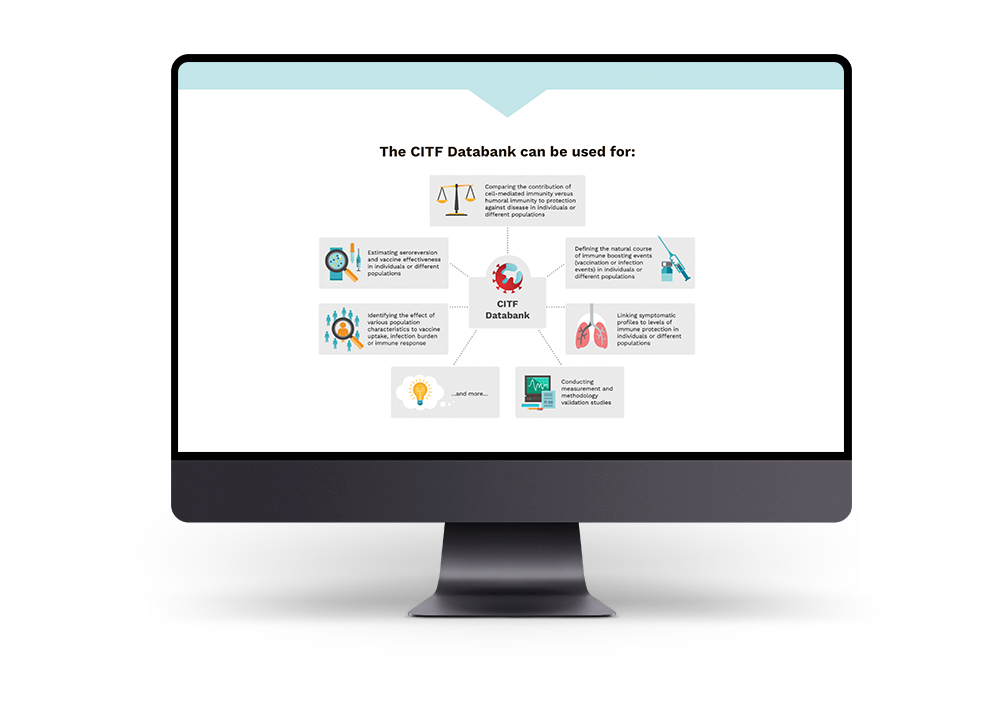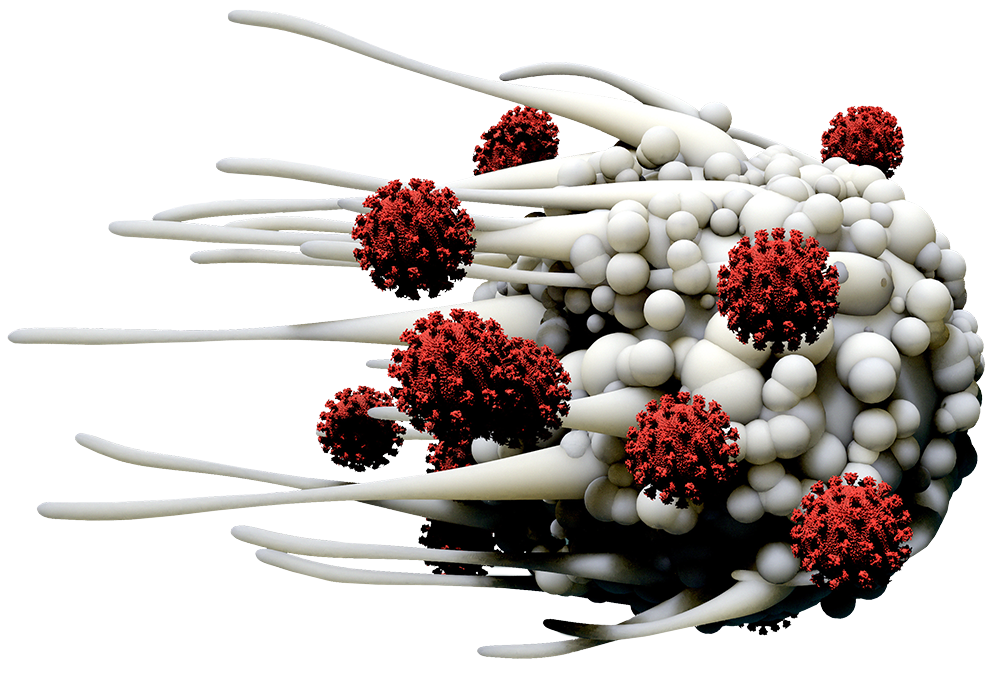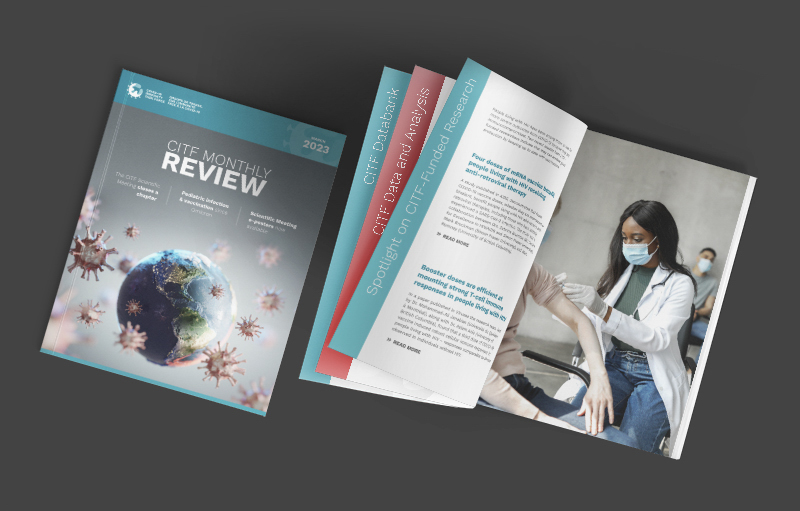The COVID-19 Immunity Task Force’s mandate
On April 23, 2020, the Government of Canada launched the COVID-19 Immunity Task Force (CITF), which carried out operations until March 31, 2024. Over nearly four years, the Task Force’s mandate was to catalyze, support, fund and harmonize knowledge on SARS-CoV-2 immunity for federal, provincial, and territorial decision-makers in their efforts to protect Canadians and minimize the impact of the COVID-19 pandemic.

Priority areas of research included:
Immune science
Advancing our understanding of immunity: Is immunity a given once someone has had COVID-19? How long does it last? Are there factors that make immunity wane faster?
Seroprevalence studies
Collecting serologic data: How many Canadians have SARS-CoV-2 antibodies, suggesting they’ve had COVID-19? Are some populations more likely to get SARS-CoV-2 and how could we better protect them?
Immune testing
Fine-tuning methods for accurate serologic testing: Which tests can detect the new variants? Are there antibody tests that can be developed giving us results in minutes?
Vaccine surveillance
Supporting research partners from across Canada in a new collaboration that studied vaccine effectiveness and safety in the population at large and in high-priority groups.
Boosters
Understanding when and if the general population and sub-groups such as long-term care residents, racialized communities or Indigenous Peoples need booster shots.
Pediatric vaccination
Researching the safety, effectiveness and immunogenicity of vaccines in
children under 12.
Immunity modelling
Modelling trends in the overall immunity across Canada arising from infection and vaccination.

CITF Databank
The CITF Databank mandate has extended beyond March 31, 2024, to provide continued support to the research community. It was developed to further enhance the impact of CITF-funded studies by allowing additional research using the data collected.
The CITF Data team centralizes population-level seroprevalence estimates and harmonizes individual-level data, then deposits them in the CITF Databank to provide the research community, both in Canada and around the world, a wide variety of standardized COVID-19 data.
Access CITF Databank


CITF-funded research results

Seroprevalence in Canada
To tailor public health strategies, it was important to understand about how many Canadians had antibodies to SARS-CoV-2, whether due to infection or vaccination or both. The CITF tracked this using seroprevalence studies (antibodies found in blood) until December 2023. This page, filled with graphs and explanations, gives a great perspective into the evolution of the pandemic.

Discover SeroTracker’s worldwide SARS-CoV-2 estimates
CITF-funded SeroTracker has added to its knowledge hub that tracks findings from SARS-CoV-2 serosurveillance efforts worldwide and in Canada. Peruse the maps and graphs and see how many people in this country (by province & territory as well) and around the world are estimated to have been infected with or vaccinated against this coronavirus to date (based on published research).
Explore SeroTracker

If I had COVID-19 in the third or fourth viral waves, can I still get infected with Omicron?
Yes, the Omicron variant has been associated with an increased risk of reinfection, that is, new infections with SARS-CoV-2 in previously recovered individuals.
How long does immunity from vaccines last?
Immune responses to COVID-19 vaccination have been shown to last up to eight months, but antibody levels decrease as early as three months post-vaccination, and this decay (or waning) varies among individuals of different ages and those with underlying medical conditions.
See all FAQs
What is serosurveillance and why is it important?
Serosurveillance is a common way of seeing how many people have been previously infected with a certain infectious agent, in this case SARS-CoV-2, the virus causing COVID-19. Blood samples from hundreds of thousands of Canadians are currently being tested to check levels of antibodies, which suggest a past infection. Serosurveillance can also help determine priority groups for vaccination and will be used to monitor the effectiveness of vaccines.

What does “vaccine surveillance” mean?
Vaccine surveillance includes studies of vaccine effectiveness (how good vaccines are at preventing severe disease, new infections, and transmission) and safety (identifying and quantifying the vaccine adverse effects). Although vaccines go through numerous trials before being approved for use, it is crucial to monitor their effectiveness and safety within a broader population and with various population groups (children, pregnant women, elderly, etc.).
See all FAQs



